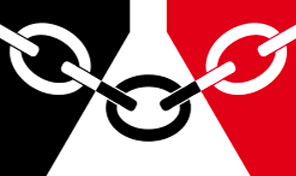This #madeinsandwell Monday we are celebrating the Sandwell women who helped to forge the way for the minimum wage
This year International Women’s Day (IWD) falls on Friday 8 March. The day celebrates the social, economic, cultural and political achievements of women everywhere while calling for a more gender-balanced world.
Each year an annual IWD campaign theme is celebrated and it continues all year long to unify direction and galvanise activity. This year’s campaign theme of #BalanceforBetter is a call to action for driving gender balance across the world.
One area that gender balance is still called for is in the workplace. To make changes happen women everywhere are involved in grassroots activism, just like the chain-making women of Sandwell who led the way in establishing a minimum wage over a century ago.
In 2019 women everywhere are fighting for balance but back in 1910 the women chain makers of Cradley Heath were already fighting for better pay and working conditions. Led by union organiser and campaigner, Mary Macarthur, the Sandwell women went on strike in protest against their low pay and exploitative working conditions.
The strike lasted for ten weeks, at the end of which they achieved their aim in attaining a living wage. The women’s victory helped to make the principle of a national minimum wage for everyone a reality.
In the nineteenth century Cradley Heath became the centre of the British chain making industry. Heavy industrial chains were made in local factories but smaller hand-hammered chains were made at home by female workers.
The women worked in outhouses containing a forge, often accompanied by their babies and small children. Usually several women worked together in the hot, cramped and unsanitary conditions.
The women were paid piece rates, depending on the amount and weight of chain they produced. They were very poorly paid, but most had little choice but to accept the pittance they received as there was no government assistance to fall back on.
The women chain makers typified ‘sweated labour’, which was notorious for low pay and bad working conditions. However, the plight of the sweated labourers had not gone unnoticed and social reformers set out to expose the diabolical conditions under which they worked.
Mary Macarthur was one of the founding members of the National Anti-Sweating League – a powerful pressure group dedicated to establishing a living wage for everyone. She also founded the National Federation of Women Workers (NFWW).
Macarthur threw herself wholeheartedly into the women chain makers’ cause and helped to organise the strike. The striking women received incredible public sympathy and support, and eventually the government denied contracts to firms refusing to pay the new minimum wage that was established.
The women also gained the support of the TUC and their victory had a huge impact across the British Labour Movement. Between 1910-1920 membership of the NFWW rose from 2,000 to 20,000.
In 2012 a monument to the women chain makers of Cradley Heath was unveiled in Mary Macarthur park. The statue was created by local artist Luke Perry, who himself comes from a family of chain makers. It took him more than two years to create and stands at three metres tall and weighs nearly 3.5 tonnes.
The statue is a celebration of the Sandwell women who stood up for their rights and achieved victory. Since then, women have come a long way but there is still more to be achieved. As we head towards International Women’s Day 2019 individuals and organisations all around the world are planning ways to celebrate women’s achievements and challenge gender bias. How will you help make a difference?
Please get in touch with us if you have a Sandwell-based good news story to share.






